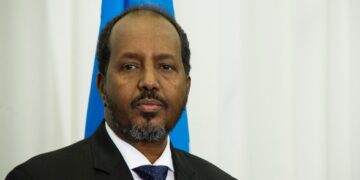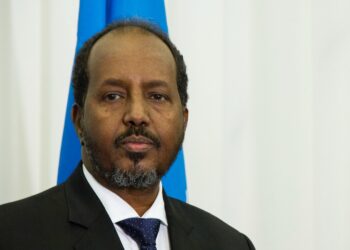By Levi Ekwe
Education is to any developing society what petroleum is to a vehicle. No society can make any sustainable developmental gains without equipping its citizenry with the required knowledge to uphold, maintain and improve their lives. The General Assembly of the United Nations adopted a resolution on 10th of December 2015 recognizing Education for Sustainable Development (ESD) as “a vital means of implementation for sustainable development”.
According to a UNESCO recommendation, every developing nation must earmark 26% of its annual budget for education. According to the organization, the budgetary benchmark is to enable nations adequately cater for rising education demands. However, in 2017 against the recommendation of UNESCO, the federal government of Nigeria’s budgetary allocation for education in Nigeria was a meager 6% of the entire budget and the recently submitted 2024 budget doesn’t show any significant improvement in this aspect either.
Tertiary education seems to be the worst hit by this inadequate funding of the education sector by the government. According to a 2012 survey, the United States with an estimated population of around 350 million has 4,726 Title IV-eligible, degree-granting institutions: 3,026 4-year institutions and 1,700 2-year institutions with a carrying capacity of about 20 million students in higher institutions per time. Nigeria, on the other hand, with a population estimated at over 206 million, has about 158 accredited degree-granting 4-year institutions. With a carrying capacity of about 600,000 of the over 2 million students who sit for WAEC annually.
READ ALSO: Son Of Former Guinea-Bissau President Jailed In The US For Drug Trafficking
However, the biggest challenge facing the Tertiary education system in Nigeria today is not the inability of the existing institutions to adequately cater for rising education demands because there are not enough institutions to absorb eligible candidates. Rather, it is because of existing privately owned institutions, year in year out, record abysmally low patronage due to high fees demands of these private universities. According to statistics from JAMB, every year, less than 2% of UTME applicants choose private Universities. Considering the serenity and student-centered set up of these private universities, one wonders why students don’t want to enroll.
This under enrollment into private universities and the issue of over concentration of admission seekers in public institutions led to a reform that saw up to 100% increase in admission quota of some private and public universities. This reform was vehemently resisted by prospecting students and parents, causing serious backlash and protests. Forcing the ministry of education to cancel and discontinue implementation of that reform. This apathy or even fear of enrollment into private universities in Nigeria is owing to an erroneous notion that public university is cheap and more affordable while private university is very expensive.
There is an unhealthy narrative in our society that propagates that private universities are owned and run by greedy profiteers, hence making it very expensive and outreach of the average Nigerian to attend or enroll their wards. This narrative finds sympathy in that notion that public university is cheap. It might interest you to know that Federal Government of Nigeria pays subvention in excess of N950,000 for each student in public university. Is that cheap? Considering the facilities, amenities and serenity obtainable in these private universities vis a vis public universities can we really say that the private universities are overpriced?
In all sincerity, I think the solution is for federal government to live up to its responsibility of providing social amelioration to the needy citizenry. 74 out of the 158 accredited degree-granting 4-year institutions in Nigeria are privately owned. These universities are not lacking in Infrastructure, Capacity and Qualitative faculty. The problem of these universities bother on high tuition fees they charge.
Therefore, in other for Nigeria’s Tertiary Education to meet up with the growing education demands of the 21st Century, Federal government must realize that all the public universities in Nigeria do not have the capacity to admit every eligible admission seeker each year. Government must seek ways to subsidize the cost of education across institutions in Nigeria so that every Nigerian who is eligible but cannot be admitted into public universities of their choice can pursue their university education in any private institution in Nigeria without being discouraged by high tuition fees.
Government must make provisions for private universities in disbursement of Tertiary Education Tax Fund (TETFund) because these funds by the way are sewn from tax payers and not from government coffers. There should be government provision for endowment fund, scholarship funds which private universities can draw from to offset tuition fees of its students. One is not advocating that government should carry out infrastructural projects in private universities rather, funds be set aside for sponsorship of Nigerian students in these institutions.
A situation where we have congested public universities and empty private universities with world class infrastructure rotting away due to lack of usage is not healthy for the pursuit of speedy human capacity development for the growth of Nigeria. These universities are set up and run in strict adherence to the ethos of higher learning across the world therefore they should be empowered to serve Nigerians better. The provision of funding for private universities is a global best practice. All over developed capitalist economies Tertiary education is driven by high private sector participation and government funding.
For example, out of the 3026 degree-granting 4-year institutions in the United States of America, only 629 are government owned the rest are owned by private organizations and religious bodies. But students across social strata can aspire and attend any of these universities whether private or public because of the American Government’s provision of funding for private universities through direct student scholarships, endowment funds and institutional funding. Among the elite private universities, like Harvard and Yale, the average taxpayer subsidy is $13,000 per student per year, while the annual subsidy at the most selective public universities, like the University of North Carolina, Chapel Hill, and the University of California, Los Angeles is more than $23,000 per student annually.
If Nigeria can borrow a leaf from developed nations like the United States, we can solve this problem of inadequacy in our Tertiary education system. This buttresses the need for government to implement the UNESCO recommendation that %26 of our annual budget must be allocated to education. By providing funding for private universities, the government would be creating and strengthening the next generation of world class universities on the shores of Nigeria.
Given the student-centered ideology guiding the running of some of these private universities it won’t take long before students and parents will prefer enrolling into private universities than public ones because of the culture of discipline, dedication and hard work prevalent amongst students and faculty of these institutions.
This will also stem the unwholesome tide of the high number of Nigerian students seeking tertiary education from neighboring countries across Africa and all over the world which comes at high forex cost to our economy.
Levi Ekwe is a Communications Consultant and Social Commentator based in Lagos




































